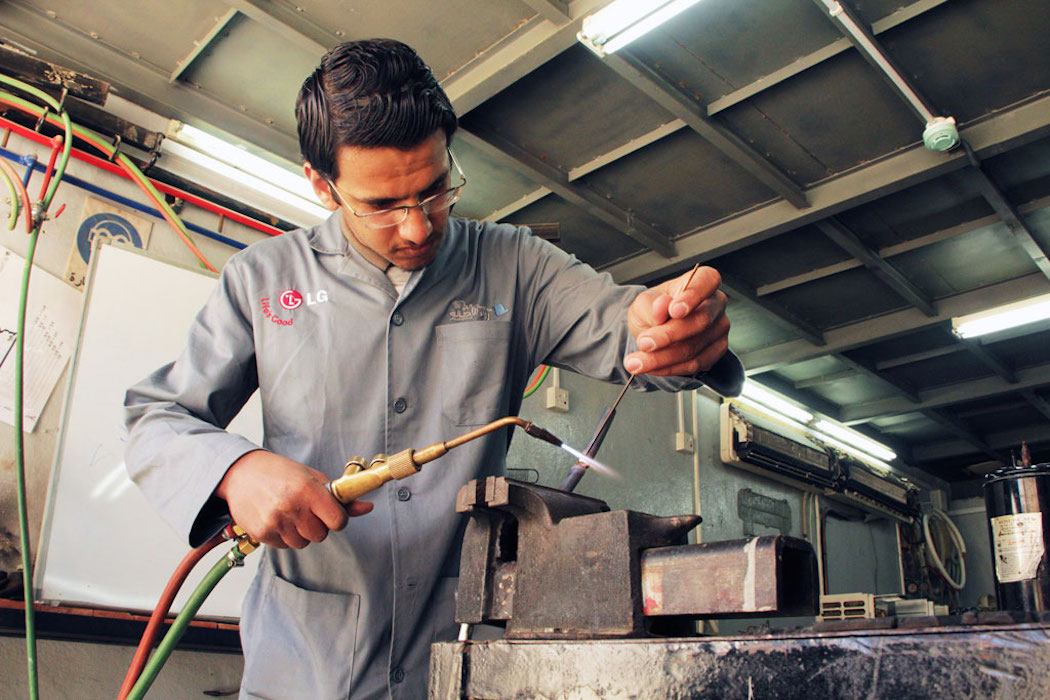On July 15th the United Nations celebrates World Youth Skills Day. With more than 73 million young people unemployed, UN Secretary General Ban Ki-moon declares that today “let us renew our resolve to invest more in empowering young people. When we do, they can better advance the broader mission of the United Nations for lasting peace, sustainable development and human rights for all.”
The planet now hosts the largest generation of youth in its history, and the current unemployment rate among the world’s youth, along with the enormous number of youth trapped in poverty even with a job, is unsustainable and an international crisis. In his message today, Mr. Ban stressed, “Young people are understandably searching for the financial security, personal satisfaction and sense of purpose that come from meaningful employment.”
Highlighting the 2030 Agenda for Sustainable Development that calls for increasing the number of youth with skills for a better future of employment and entrepreneurship, the Secretary General added, “Successful skills programmes link young people with opportunities to gain experience and jobs. It is especially critical to cultivate girls and young women with skills in science, technology and innovation.”
Grim news came today, however, when the United Nations Education, Scientific and Cultural Organization (UNESCO) reported that 263 million children and youth are out of school from primary to upper secondary levels. That number is equivalent to about a quarter of Europe’s population, with sub-Saharan Africa having the highest rates of exclusion.
“Countries have promised to provide every child with a primary and secondary education by 2030. These new findings show the hard work ahead if we are to reach this goal,” said UNESCO Director-General Irina Bokova.
UNESCO’s Institute for Statistics and Global Education Monitoring (GEM) Report released a joint report, “Leaving no one behind: How far on the way to universal primary and secondary education?,” showing that of the 263 million youth out of school, 61 million are of primary school age (6-11), 60 million of lower secondary age (12-14), and nearly 142 million of upper secondary age (15-17).
The report notes that regions engaged in armed conflict continue to severely bar youth from education, and that sex, location, and wealth disparities are persistent. 15 million girls from ages 6-11 will never even get the chance to learn to read or write in comparison to 10 million boys. 9 million of these girls live in sub-Saharan Africa.
Given these statistics, the mass radicalization of youth around the world today, whether it be for Islamism in the Middle East and Northern Africa, or for reactionary conservatism in the United States, should not be surprising. The millions of youths suffering unemployment, lack of education, poverty and other forms of social unrest will only plunge further generations into destitution and escalate the international security issue of terrorism.
Yesterday in Nice, France 84 people were killed and 202 injured by a terrorist attack on Bastille Day celebrators. Today the world mourns for those lost and awaits any information on the 31-year old French-Tunisian attacker Mohamed Lahouaiej-Bouhlel.
It is unclear whether the attacker was affiliated with any specific radical group, and although Bouhlel is not a youth, yesterday’s tragic event should shed light on the importance of today’s report. If the international community and nation states do not make a greater effort to create a better future and present reality for their youth, they should not be surprised when radical groups gain members and power, and when unstable, disturbed individuals lash out on civilians. Security issues should not only be met with arms, but with resources to help today’s youth pursue desirable futures.
World Youth Skills Day should not be overlooked in light of all that is happening around the globe. Perhaps the specific incident in Nice does not directly testify to the growing international unrest of youths, but it serves as an example of what could occur if the world lets the emerging generation suffer. More attacks will inevitably come in the West, but countless attacks are currently taking place around the world, many of them by youths who never had a fair chance at a peaceful and stable life. Let today inspire us to change that.












